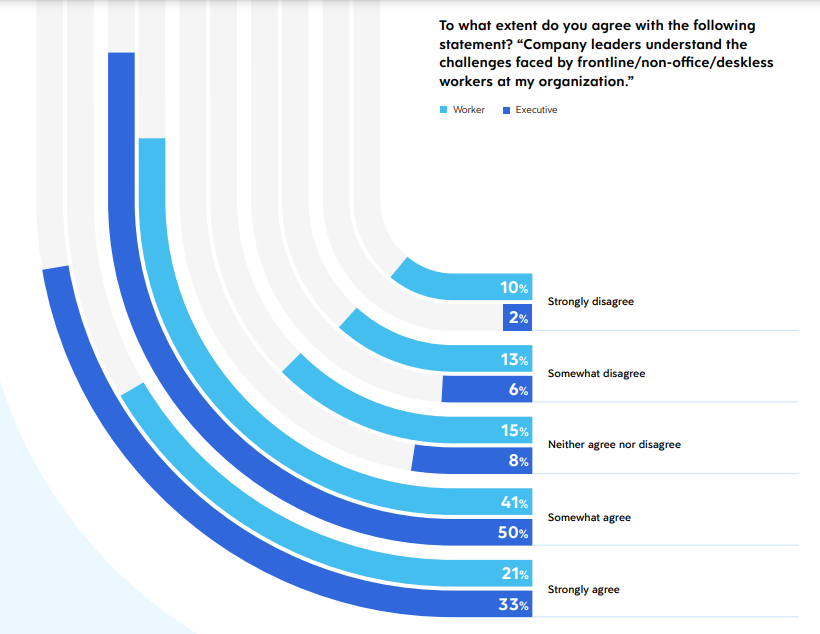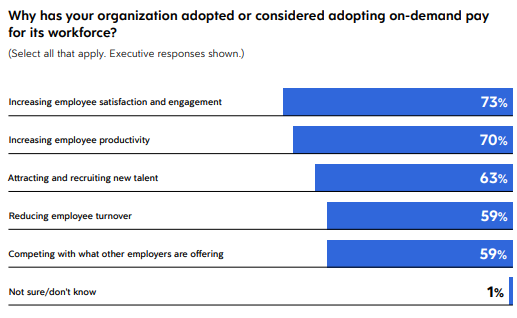'The key to closing the gap is empowering managers with the data, tools, and executive support needed to drive better decision making'

Many employers believe that they understand the challenges faced by Canadian frontline/deskless employees in their company. However, many workers do not agree, finds a recent survey.
Overall, 88 per cent of executives say they either strongly agree (33 per cent) or somewhat agree (50 per cent) that company leaders understand the challenges faced by frontline/non-office/deskless workers at their organization, reports Dayforce.
However, only 62 per cent of workers either strongly agree (21 per cent) or somewhat agree (41 per cent) to the statement.

Source: Dayforce
In June, the government of Canada announced its intent to expand early pension eligibility for key frontline safety and security workers.
What is frustrating front-line workers?
A previous report noted that turnover is high among deskless workers.
Scheduling is one key factor in that trend, according to Dayforce’s survey of 6,935 workers, managers, and executives in industries with frontline workers.
Overall, 89 per cent of managers and 86 per cent of frontline workers would consider leaving their current job for one with a better schedule.
Pay is another factor, as executives are 21 per cent more likely than managers to say employees are paid fairly. Also, while most executives (88 per cent) somewhat or strongly agree they have the data they need to make competitive compensation decisions, managers don’t feel as confident (72 per cent).
The timing of pay is also crucial, with 54 per cent of executives saying their organization has adopted or is considering adopting on-demand pay. They’re reasons for doing just that include:

Source: Dayforce
To retain frontline workers, Dayforce suggests the following:
- Managers need leadership buy-in and support to improve schedule flexibility for workers – and for themselves too.
- Organizations should give managers the information they need to make compensation decisions that help reduce turnover, improve recruitment, and continuously focus on fair pay as a fundamental element of the employer/employee relationship.
- Help managers optimize their current workforce by prioritizing internal mobility and creating personalized career paths. According to Dayforce’s data, 65 per cent of workers want to advance in their company.
- Organizations should leverage technology that makes compliance easier to manage and saves time for managers, so they can focus more on people. Currently, 92 per cent of executives say their organization has compliance challenges, and 42 per cent of managers agree that workforce compliance has become harder over the past two years.
- The employee experience is no longer just a manager’s responsibility, executives must also engage with and listen to workers to help minimize labor shortages that disrupt business continuity. Dayforce’s study notes that while 90 oer cent of executives say they feel a moderate or high degree of connection to their employer, just 72 per cent of frontline workers agree.
Frontline workers are too often forgotten, according to a previous report.




